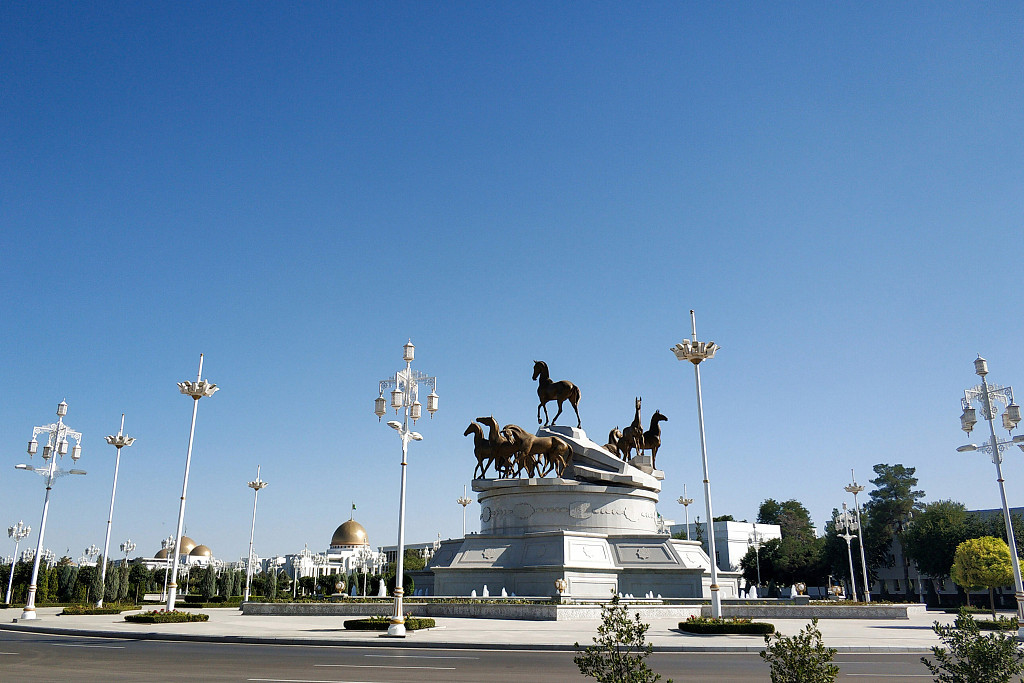European Union-UNDRR project helps to improve Turkmenistan’s resilience to disaster threats

ASHGABAT, 23 February 2022 - The United Nations Office for Disaster Risk Reduction (UNDRR), with the financial support of the European Union, and in collaboration with the Ministry of Defence of Turkmenistan, convened an expert-level meeting with 16 members of the Interagency Working Group for Disaster Risk Reduction (National Platform for DRR) at the UN House.
During the meeting, participants discussed the priorities of the Government of Turkmenistan in disaster risk reduction in line with the State Program and the Sendai Framework 2022 — 2030 as well as the Interagency Working Group’s roles and functions.
Participants also engaged in a Disaster Risk Perception Assessment exercise, which showcased the importance of interpreting disaster risks within the broader field of disaster mitigation. The exercise verified that risk perception strongly contributes to resilience as there was a strong correlation between risk perception and preparedness behaviour.
Mr. Begench Rejepow, Senior Specialist of the Main Department of Civil Defence and Rescue Operations, Ministry of Defence of Turkmenistan, emphasised that “the Inter-agency Working Group will serve as a coordinating mechanism for enhancing the cooperation of stakeholders to ensure the sustainability of DRR activities through a process of consultation and participation in accordance with the Sendai Framework and the State Program”
Regional Programme Manager, Mr. Abdurahim Muhidov pointed that “National Platform should contribute to raising awareness and expanding opportunities to attract sustainable investment, including from the private sector and international development actors”.
Mr. Chary Nurmuhammedov, Strategic Team Leader of UN Resident Coordinator Office, emphasized that “the National DRR Platform is a national forum of stakeholders that will be working to improve the country’s resilience to disaster threats”.
Background information
The EU-funded project “Strengthening disaster resilience and accelerating implementation of Sendai Framework for Disaster Risk Reduction in Central Asia”, implemented by the United Nations Office for Disaster Risk Reduction (UNDRR), aims to support countries of the region in implementing the Sendai Framework priorities. The project supports strengthening national and regional coordination in DRR and development of national disaster loss accounting systems. On the local level, the project supports development of disaster resilience strategies of capital cities, and community level disaster risk reduction. The EU has committed EUR 3,750,000 for the three-year implementation of this project.
The Interagency Working Group for DRR, which constitutes the National Platform for DRR, is a multi-stakeholder national mechanism that will coordinate actions on risk reduction. It advocates DRR at different levels and provides coordination, analysis, and advice on priority areas for managing disaster risks. The Platform is based on a set of principles, including national ownership and leadership of the DRR process.
The collaboration between UNDRR and the Government of Turkmenistan is guided by the State Programme for implementation of primary areas of state policy in the field of civil defence for 2019—2030 (approved by the Decree of the President of Turkmenistan #1156, dated of 1 March 2019, and recognized as the National Strategy on Disaster Risk Reduction). The Action Plan for the implementation of the State Programme includes disaster preparedness, response, mitigation, and prevention activities. The Action Plan specifically outlines international cooperation as a tool to implement the Sendai Framework for Disaster Risk Reduction 2015-2030. The activities are also a part of the Central Asia Initiative, “Strengthening disaster resilience and accelerating implementation of Sendai Framework for Disaster Risk Reduction in Central Asia 2019-2022”, which is funded by the European Union and carried out by UNDRR.
Source:United Nations Office for Disaster Risk Reduction - Regional Office for Europe & Central Asia






